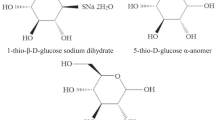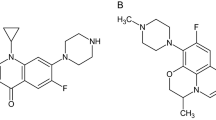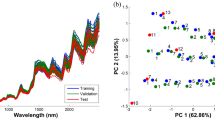Abstract
DURING a recent investigation of lactosuria in burns1 following cutaneous absorption of the lactose from penicillin-lactose powder, it was found that ascending chromatography of the urine yielded spots of considerably lower RF values than lactose itself. 0.02 ml. amounts of urine were applied; and the solvent consisted of n-butanol 5.7 parts, ethanol 1.57 parts, water 2.73 parts, and contained 1 per cent ammonia solution. The substance obtained from these spots, however, when isolated and identified by standard chemical procedures, proved to be lactose.
This is a preview of subscription content, access via your institution
Access options
Subscribe to this journal
Receive 51 print issues and online access
$199.00 per year
only $3.90 per issue
Buy this article
- Purchase on Springer Link
- Instant access to full article PDF
Prices may be subject to local taxes which are calculated during checkout
Similar content being viewed by others
References
Baar, S., and Bull, J. P., Lancet, i, 978 (1952).
Kennedy, E. P., and Barker, H. A., Anal. Chem., 23, 1033 (1951).
Author information
Authors and Affiliations
Rights and permissions
About this article
Cite this article
BAAR, S., BULL, J. Salt Interference in Sugar Chromatography of Urine. Nature 172, 414–415 (1953). https://doi.org/10.1038/172414a0
Issue Date:
DOI: https://doi.org/10.1038/172414a0
This article is cited by
-
Progesterone withdrawal as the lactogenic trigger in the rat
Journal of Mammary Gland Biology and Neoplasia (2009)
-
Subcellular compartmentation in the synthesis of the milk sugars lactose and ?-2,3-sialyllactose
Protoplasma (1990)
Comments
By submitting a comment you agree to abide by our Terms and Community Guidelines. If you find something abusive or that does not comply with our terms or guidelines please flag it as inappropriate.



